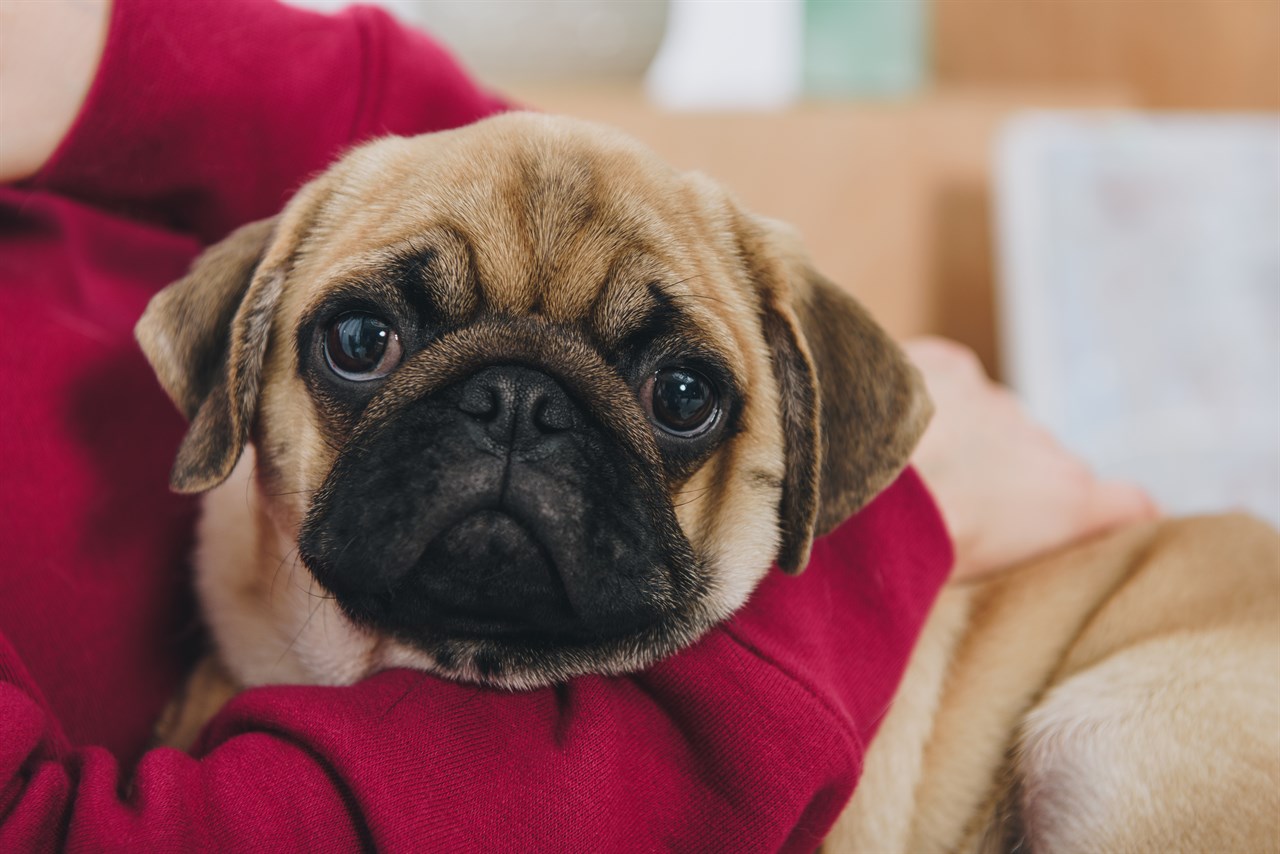Sleeping Requirements and Sleeping Habits of the Pug

Pugs, like many dogs, have specific sleeping requirements and habits that are influenced by their natural behaviours and preferences. Understanding these needs can help you provide a comfortable sleeping environment for your Pug.
Comfortable Sleeping Spots
Pugs enjoy cosy and comfortable sleeping spots. Many Pugs appreciate soft, cushioned beds, blankets, or even your furniture. Providing a designated sleeping area can help establish a routine and a sense of security.
Should Pugs Sleep in Your Bed?
Whether or not you allow your Pug to sleep in your bed is a personal decision. Some Pug owners enjoy the companionship and warmth of their dogs, while others prefer their pets to have their own sleeping space. If you choose to let your Pug sleep with you, ensure it doesn't lead to behavioural issues or disruptions in your sleep.
Sleeping Under Covers
Why do Pugs sleep under covers? and Why do Pugs like to sleep under covers? Many Pugs enjoy sleeping under covers because it provides them with a sense of security and warmth. This behaviour may stem from their ancestral instincts when dogs burrowed for warmth and protection. If your Pug likes sleeping under covers, consider providing a lightweight and breathable blanket to ensure they don't overheat.
Sleep Duration
Do Pugs sleep all night? Yes, Pugs typically sleep through the night once they adjust to a regular sleep schedule. Puppies may need to go outside for a bathroom break during the night initially, but as they mature, they can sleep through the night without interruptions.
How Many Hours do Pugs Sleep?
Pugs are known for their love of sleep. On average, adult Pugs sleep anywhere from 12 to 16 hours a day. Puppies and elderly Pugs may sleep even more. It's essential to provide them with a comfortable and quiet sleeping area to meet their sleep needs.
Sleep Quality
Pugs are sensitive to their environment, and disturbances, such as loud noises or discomfort, can affect their sleep quality. To ensure your Pug gets a good night's sleep, create a peaceful sleeping space, keep the temperature comfortable, and minimise disruptions.
In conclusion, Pugs have individual sleeping preferences, but they generally enjoy cosy and comfortable sleeping spots. Whether your Pug sleeps in your bed or has its designated sleeping area, providing a peaceful and secure environment is essential for their well-being. Understanding their sleeping habits and needs helps ensure they get the restorative rest required for a happy and healthy life.